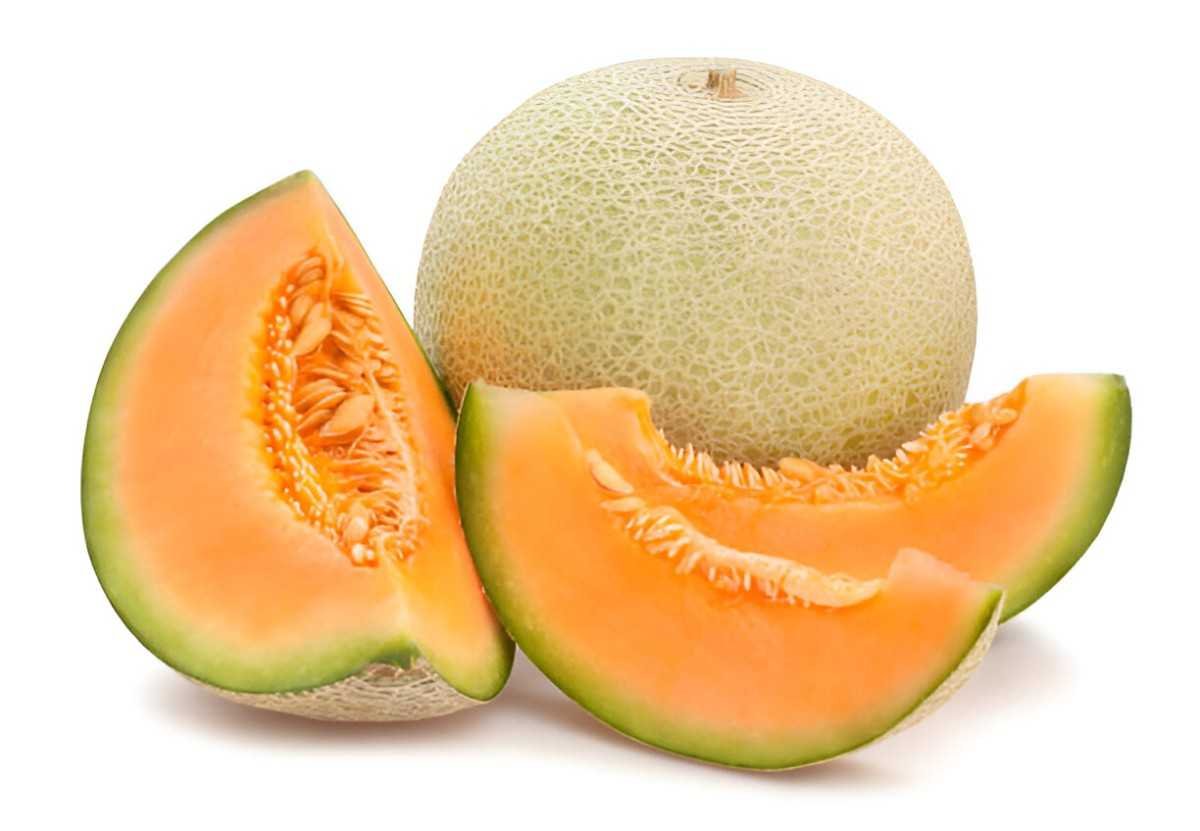Cantaloupe, also known as muskmelon or rockmelon, is a juicy and sweet fruit belonging to the Cucurbitaceae family. With its vibrant orange flesh and distinct aroma, cantaloupe not only tantalizes the taste buds but also offers a myriad of health benefits. Let’s dive into its nutritional values, key health benefits, potential therapeutic uses, cautions, and ways to incorporate cantaloupe into your diet.
Summary Table
| Nutritional Values | Key Health Benefits | Potential Therapeutic Uses | Cautions | Incorporation |
|---|---|---|---|---|
| – Calories: 34 kcal per 100g | – Rich in Antioxidants | – Weight Management | – Allergies | – Fresh Snack |
| – Carbohydrates: 8 grams per 100g | – Supports Eye Health | – Skin Health | – FODMAP Sensitivity | – Smoothies |
| – Protein: 0.8 grams per 100g | – Boosts Immunity | – Anti-Inflammatory Effects | – Pesticide Residues | – Salads |
| – Fat: 0.2 grams per 100g | – Hydration | – Sorbet | ||
| – Fiber: 0.9 grams per 100g | – Heart Health | – Salsas | ||
| – Vitamins: A, C, K | – Digestive Health | |||
| – Minerals: Potassium, Magnesium |
Nutritional Values
Cantaloupe is a low-calorie fruit packed with essential vitamins, minerals, and antioxidants. Here’s a glimpse of its nutritional profile per 100 grams:
- Calories: 34 kcal
- Carbohydrates: 8 grams
- Protein: 0.8 grams
- Fat: 0.2 grams
- Fiber: 0.9 grams
- Vitamin A: 3382 IU (68% of DV)
- Vitamin C: 36.7 mg (61% of DV)
- Vitamin K: 2.5 mcg (3% of DV)
- Potassium: 267 mg (8% of DV)
- Magnesium: 12 mg (3% of DV)
Key Health Benefits
- Rich in Antioxidants: Cantaloupe is loaded with antioxidants like beta-carotene, vitamin C, and flavonoids, which help neutralize harmful free radicals and reduce the risk of chronic diseases.
- Supports Eye Health: The high vitamin A content in cantaloupe promotes healthy vision and may reduce the risk of age-related macular degeneration and cataracts.
- Boosts Immunity: Vitamin C in cantaloupe strengthens the immune system, enhances the production of white blood cells, and helps the body fight off infections.
- Hydration: With its high water content (about 90%), cantaloupe helps keep the body hydrated, especially during hot weather or strenuous activities.
- Heart Health: Potassium in cantaloupe helps regulate blood pressure and heart rhythm, reducing the risk of hypertension and cardiovascular diseases.
- Digestive Health: The fiber content in cantaloupe promotes healthy digestion, prevents constipation, and supports gut health.
Potential Therapeutic Uses
- Weight Management: Cantaloupe’s low calorie and high water content make it an excellent choice for those looking to manage their weight.
- Skin Health: The vitamin C and beta-carotene in cantaloupe may contribute to healthy, glowing skin and may help protect against sun damage.
- Anti-Inflammatory Effects: Some studies suggest that the antioxidants in cantaloupe may have anti-inflammatory properties, potentially benefiting conditions like arthritis and asthma.
Cautions
While cantaloupe is generally safe for consumption, individuals with certain conditions should exercise caution:
- Allergies: Rarely, some individuals may have allergies to cantaloupe. Symptoms may include itching, swelling, or difficulty breathing.
- FODMAP Sensitivity: Cantaloupe contains FODMAPs (fermentable oligo-, di-, mono-saccharides, and polyols), which may trigger symptoms in individuals with irritable bowel syndrome (IBS) or other digestive disorders.
- Pesticide Residues: Always wash cantaloupe thoroughly before consuming to remove any pesticide residues on the skin.
How to Incorporate Cantaloupe into Your Diet
- Fresh Snack: Enjoy cantaloupe slices as a refreshing and hydrating snack on its own or paired with yogurt or cottage cheese.
- Smoothies: Blend cantaloupe with other fruits like strawberries and bananas for a delicious and nutritious smoothie.
- Salads: Add cubed cantaloupe to green salads for a pop of color, sweetness, and texture.
- Sorbet: Freeze pureed cantaloupe for a homemade and healthy sorbet alternative.
- Salsas: Use diced cantaloupe in fruit salsas to accompany grilled fish or chicken dishes.
Cantaloupe is not only a delicious and refreshing fruit but also a nutritional powerhouse with numerous health benefits. Whether enjoyed as a snack, added to salads or smoothies, or used in various culinary creations, cantaloupe offers a delightful way to boost your intake of essential vitamins, minerals, and antioxidants. By incorporating cantaloupe into your diet, you can support your overall health and well-being while savoring its sweet and juicy flavor. As always, consult with a healthcare provider or nutritionist for personalized dietary recommendations, especially if you have specific health concerns or dietary restrictions.





